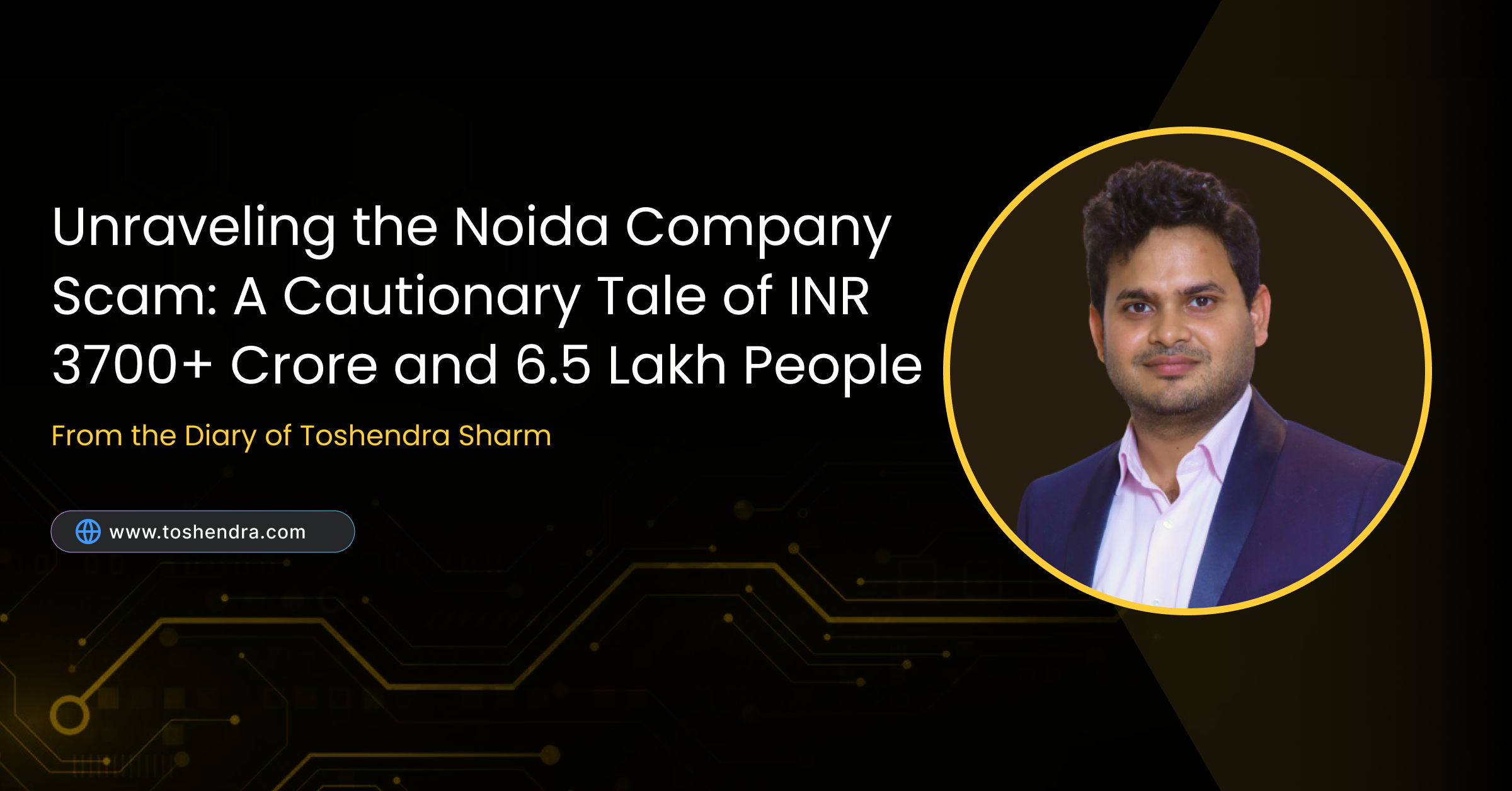
Unraveling the Noida Company Scam: A Cautionary Tale of INR 3700+ Crore and 6.5 Lakh People
In the quest for wealth, boundaries between legal and ethical practices can sometimes blur. Today, I’m dissecting the notorious “Like Scam” by a Noida-based company, which duped INR 3700+ crore from 6.5 lakh people. While the media has highlighted various aspects of this scam, the mechanics of the fraud itself often remain unexplained. Let’s delve into this.
The Misconception: Like or Click Scam?
Contrary to popular belief and media reports, this wasn’t a “Like” scam; it was a “Click” scam. But what does that mean? Let’s break it down.
The Mechanics of the Scam
Imagine two ordinary individuals, Alice and Bob, both looking to multiply their savings. They encounter Social Blaze, the company at the center of this scam. Social Blaze asks them to deposit an amount between INR 5.5k and INR 55k, promising returns for clicking on ads within a portal it provides. The more people they bring into the system, the more they supposedly earn. Alice even goes a step further, hiring people to click on ads.
The Illusion of a Legitimate Business
On the surface, this model might seem attractive and viable. There’s no apparent upper limit to earnings, and it looks like a straightforward exchange of clicks for cash. But here’s the catch: this is not how genuine businesses operate.
Unpacking the Scam
Let’s examine why this setup was dubious. While technically legal under Indian law, it was fundamentally unethical. The supply and demand for these ad clicks were artificially created by the members themselves, with no real interest in the ads. These were fake clicks, devoid of any genuine Call-To-Action engagement.
In essence, Social Blaze was circulating money within its system under the guise of ad revenue, without any real value or service being exchanged.
The Profit Model of Social Blaze
The company’s revenue model was structured to start slow. As membership grew into the hundreds of thousands, Social Blaze adjusted the payout and click rates to ensure a steady, albeit slow, income stream for its members, all while amassing significant profits for itself.
The Takeaway: Legal Doesn’t Always Mean Ethical
This case study categorizes businesses into four groups: Legal & Ethical, Legal & Unethical (like Social Blaze), Illegal & Ethical, and Illegal & Unethical. It’s crucial to recognize and steer clear of ventures that fall into the unethical categories, regardless of their legal standing.
The digital age brings with it a plethora of business models. While many are legal, not all are ethical. As consumers and investors, it’s imperative to remain vigilant.
I invite your thoughts and comments on this matter. For more insights and analyses on similar topics, remember to subscribe to my blog.
